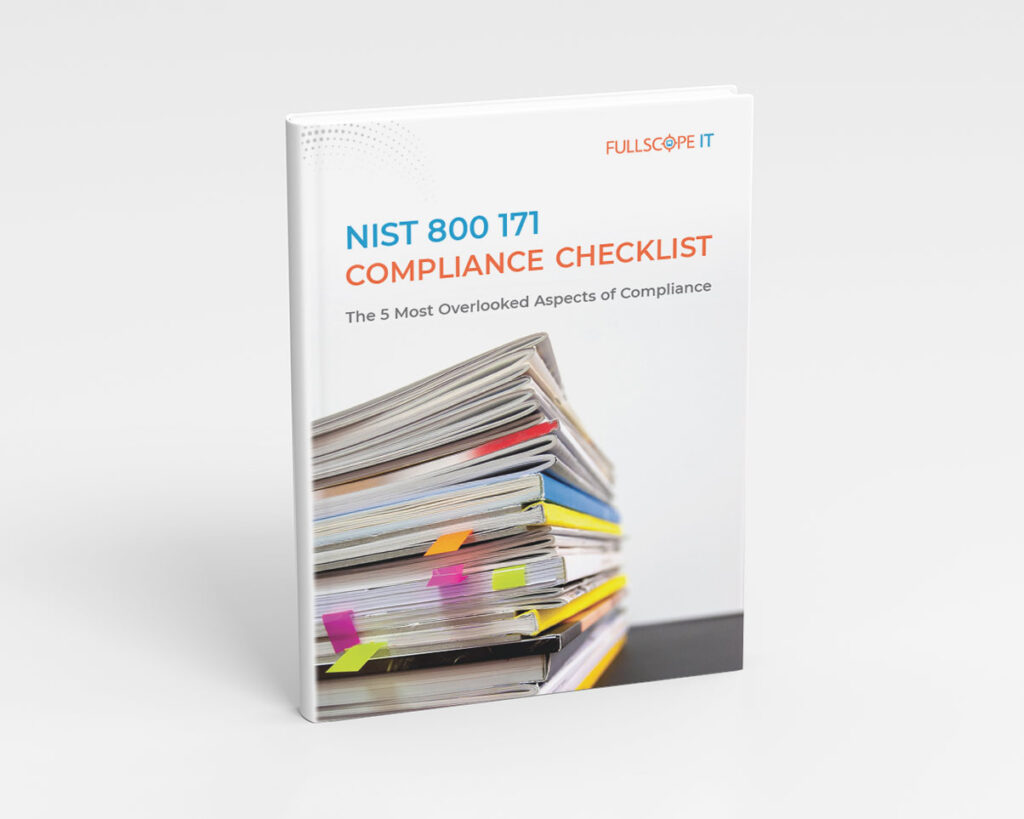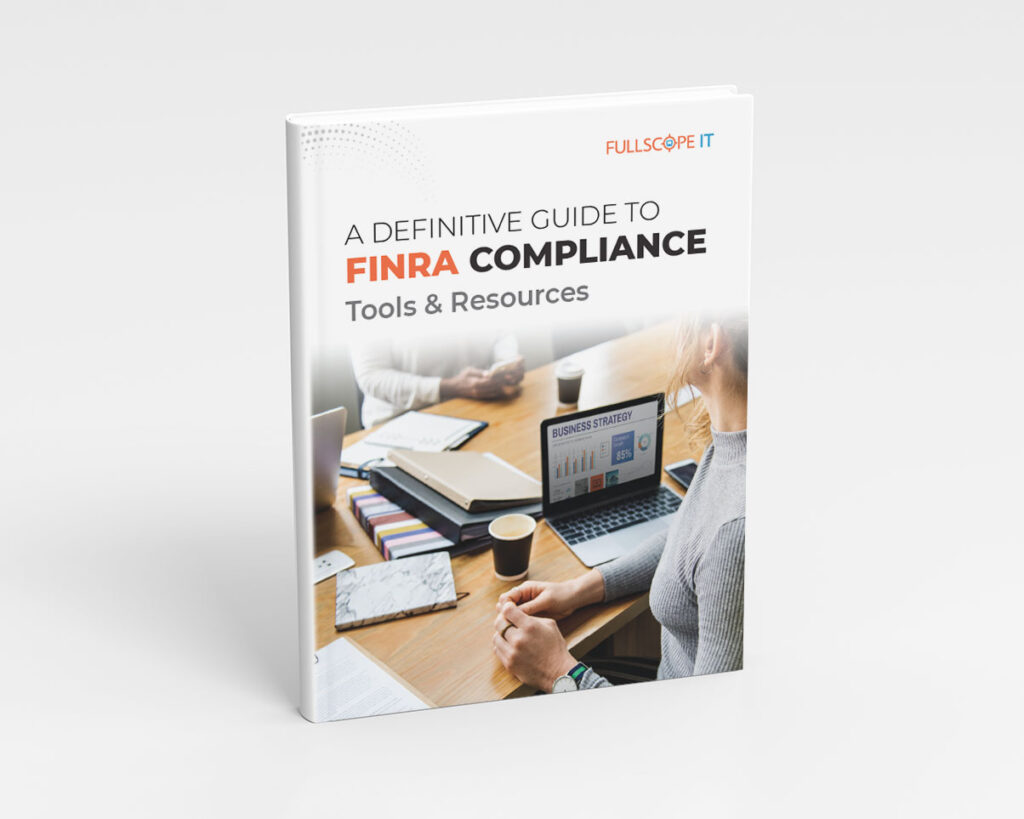Cybersecurity Tips for Businesses on Black Friday and Cyber Monday
How to protect your company from cyber threats during the holiday shopping season.
Welcome to the holiday season, where shopping is in full swing, and cyber threats are lurking. As Black Friday and Cyber Monday kick off the festivities, it’s essential to safeguard your business from potential cyber dangers.
This FullScope IT guide equips your business to navigate the holiday shopping season securely. It outlines common cyber threats and offers practical tips to keep your enterprise protected during Black Friday and Cyber Monday. With this resource in hand, you and your team can embrace the holiday spirit without worrying about cyberattacks. Stay safe and enjoy the magic of the season!
A Shopping Frenzy and Cyber Risks
Black Friday and Cyber Monday, the post-Thanksgiving shopping extravaganzas, draw massive crowds. In 2022, consumers splurged a staggering $20.42 billion on these days, as reported by Adobe.
However, these shopping bonanzas also catch the eye of cybercriminals. While we can’t pinpoint the exact rise in cyberattacks, 2022 offered some concerning signs:
- Google reported a 10% surge in blocked spam and scams before Thanksgiving.
- Check Point Security discovered numerous fake websites mimicking renowned brands, which gained traction as Black Friday neared.
- CyberGRX observed an uptick in fake delivery notifications, banking alerts, travel offers, and holiday job offers.
- Searchlight Security, a dark web intelligence company, noticed ‘Black Friday Sale Prices’ on tools for cybercriminals, such as ATM skimmers and malware.
Simply put, consumers are gearing up for 2023’s shopping extravaganza, and cybercriminals are well aware of the opportunity.
The Impact on Your Business
Your employees, who are also consumers, pose potential risks. Even if they’re enjoying the holidays at home or working remotely, those with access to company devices may inadvertently compromise your company’s security. Weak passwords can grant cybercriminals access to sensitive enterprise data.
Moreover, if your business participates in these shopping events, you face increased cyber threats. Cybercriminals understand that employees are often ‘out of office’ during the holidays, lowering their guards. They also know that businesses, like consumers, engage in more transactions, making it easier for suspicious activities to slip through the cracks.
Common Cyber Threats on Black Friday and Cyber Monday
These shopping bonanzas aren’t just fun for shoppers; cyber crooks love them too. During Black Friday and Cyber Monday, people tend to let their guard down, especially when they use work gadgets for personal shopping. This can unwittingly open the door to cyber threats for businesses.
Businesses are usually busy handling sales, customer service, and stock during this time. Cyberattacks might not be high on their radar. But here’s the thing: even a small business that goes viral on social media can become a target. A simple hashtag can bring fame, but it can also alert cyber bots to attack the business’s website. This could lead to data breaches and lost sales.
Everyone Is a Target
Cybercriminals don’t discriminate. They go after any weak spot they find, from big chains to mom-and-pop shops. Money is usually their motivation. In fact, about 90% of cyberattacks are financially driven.
The stats don’t paint a pretty picture, especially for small retail businesses. They’re 50% more likely to be attacked than big ones. The cost? A whopping $6.9 billion in losses. What’s scarier is that most of these attacks go unreported, and 73% of companies aren’t ready to fight off a cyberattack.
For businesses, the first step in protection is knowing these cyber threats. Your reputation and customer trust are on the line. One breach can mean big trouble in today’s digital world, so take cybersecurity seriously.
Common Cyber Threats
Here are some common cyber threats to look out for on Black Friday and Cyber Monday:
- Phishing Attempts: During the holiday shopping frenzy, phishing emails imitate tempting deals or trusted financial institutions to trick users into sharing sensitive data, such as login credentials or credit card info. Fake shipping notifications may lead to malware infections.
- Malware and Ransomware Risks: While shopping online, beware of malware hiding in ads or shopping apps. Ransomware can encrypt critical files and demand a ransom, disrupting business and jeopardizing customer data.
- Payment Scams: Cybercriminals create counterfeit websites resembling legitimate retailers, enticing shoppers with irresistible deals. Unsuspecting users may fall victim to these scams, resulting in financial loss and potential identity theft.
- Account Takeovers: Weak passwords or stolen credentials from previous data breaches can lead to unauthorized access to online accounts. This can result in loyalty points theft, fraudulent purchases, and damage to brand reputation.
- DDoS Attacks: Distributed Denial of Service attacks can incapacitate a retailer’s website, causing significant revenue loss, especially during peak shopping days like Black Friday and Cyber Monday. Small businesses are also vulnerable.
- Public Wi-Fi Risks: Using public Wi-Fi networks during holiday travel can expose sensitive information to hackers. Unsecured networks provide opportunities for cybercriminals to intercept data, leading to potential fraud or unauthorized access to corporate networks.
How Cyberattacks Affect Businesses on Black Friday and Cyber Monday
Cybersecurity is no longer just for tech experts; it’s a concern for SMBs in all industries. As these businesses digitize their operations, they become prime targets for cybercriminals, especially during peak events like Black Friday and Cyber Monday.
Fast-growing enterprises often lack the cybersecurity infrastructure needed to safeguard their data and customer bases. In fact, businesses with under 1,000 employees were involved in 46% of cyber breaches in 2021. Recovering from an attack, including operational downtime, reputation harm, and sales losses, can be challenging for these companies.
Even critical infrastructure isn’t safe, as shown by the 2021 advisory from the Cybersecurity and Infrastructure Security Agency (CISA) regarding heightened cyber threats during holidays and weekends.
Impact on Industries
Here are just a few examples of how specific cyberattacks can affect different industries on Black Friday and Cyber Monday:
E-Commerce
E-commerce platforms, bustling with holiday transactions, are fertile grounds for cyber threats, such as:
- Targeted Phishing Campaigns: Emails mimicking official communications to steal login credentials and payment information.
- Website Cloning and Payment Frauds: Fake websites that clone legitimate e-commerce platforms can trick customers into making purchases and divulging credit card information.
Retail
The retail industry also faces unique cyber challenges during these high-traffic events, including:
- Point-of-Sale Malware: Malware attacks on POS systems can lead to stolen credit card details during transaction processing.
- DDoS Attacks: DDoS attacks can take websites offline during critical sales periods, resulting in significant financial losses.
Banking and Financial Services
Financial services, the backbone of holiday transactions, must also guard against sophisticated cyberattacks, such as:
- Credential Stuffing: Stolen account information is used to gain unauthorized access to financial accounts.
- ATM Skimming and Wire Transfer Frauds: Increased ATM skimming and wire transfer frauds exploit the high volume of holiday transactions.
Hospitality and Travel
The hospitality and travel sector, experiencing a surge in holiday bookings, is also a target for cyberattacks, including:
- Booking Scams: Scammers create bogus travel deals and hotel bookings to swindle customers.
- Loyalty Program Fraud: Loyalty accounts are breached, resulting in the theft of points and personal information.
Cybersecurity Tips for Businesses on Black Friday and Cyber Monday
The average consumer spent over $500 during the week of Black Friday and Cyber Monday in 2022, according to Deloitte. But with extended shopping hours and a surge in mobile and online sales, businesses must protect their revenue and their customers’ sensitive information.
Here are some tips to strengthen your business’s cyber defenses during the holiday shopping season:
Tip #1: Spotting Phishing Scams
During the holiday rush, teach employees to recognize phishing signs:
- Identify Phishing Indicators: Look for unsolicited emails with urgent language, requesting immediate action, or containing offers that seem too good to be true.
- Verify Suspicious Links: Hover over links to see where they lead, and avoid downloading attachments from unverified sources.
- Use Official Contacts: Encourage using known, official contact methods to verify communications; when in doubt, contact the company directly through official customer service channels.
Tip #2: Educate Against Malware
Train staff to spot malware and ransomware:
- Conduct Security Training: Provide comprehensive training on spotting malware signs, such as pop-ups, sluggish performance, and unsolicited payment requests.
- Keep Software Updated: Ensure all systems and software receive the latest security patches to prevent exploitation of known vulnerabilities.
Tip #3: Monitor Transactions
Stay vigilant for unusual activity:
- Secure Payments: Ensure payment gateways are encrypted to protect customer data during transactions.
- Review Transactions: Assign staff to frequently review transactions for irregularities and inconsistencies.
- Educate Customers: Inform customers about signs of fraudulent transactions and encourage them to report suspicious activity.
Tip #4: Use Multi-Factor Authentication (MFA)
Implement Multi-Factor Authentication for added security:
- Understand MFA: Explain to your team how MFA adds an extra layer of security by requiring two or more verification factors.
- Apply MFA to All Accounts: Implement MFA for all company accounts to enhance security.
- Provide Backup Authentication Methods: Offer alternative authentication methods if the primary one is unavailable.
Tip #5: Proactive Security Testing
Prepare your business for high-traffic events:
- Penetration Testing: Engage cybersecurity experts to simulate attacks on your systems and identify vulnerabilities.
- Vulnerability Scanning: Regularly scan your network and systems for vulnerabilities.
- Security Audits: Conduct thorough audits of your security policies and procedures.
- Employee Access Review: Reassess employee access to sensitive data and systems.
- Website Load Testing: Verify your website can handle increased traffic without compromising security measures.
Tip #6: Encrypt Data Across All Company Devices
Protect sensitive data during online transactions:
- Encrypt Sensitive Data: Ensure all sensitive data is encrypted, both at rest and in transit.
- Educate Employees on Encryption: Teach employees the importance of proper encryption when handling company data.
- Encrypt Endpoints: Apply encryption to laptops, mobile devices, and endpoints that may access sensitive business data.
Protect Your Business This Holiday Shopping Season with FullScope IT
Navigating the complex cybersecurity landscape can be especially challenging for small and medium-sized businesses. We understand that your primary focus should be on what matters most: running your business. Let the experts manage your IT needs.
With over 20 years of experience, FullScope IT is a trusted managed IT services provider for businesses in Arizona, Maryland, New York, and Virginia. Our mission is to keep your business’s IT operations running smoothly so you can thrive.
Our cybersecurity services include:
- Comprehensive Defense Strategies: Tailored solutions that cover potential cybersecurity threats, ensuring your business is well-protected.
- Cutting-edge Network Security: Continuous auditing, monitoring, and upgrading to proactively address ever-evolving cyber challenges and enhancing your network’s security.
- Expert Monitoring and Rapid Response: Our dedicated team of cybersecurity experts oversees your network, responding swiftly to potential breaches.
Ready to get started with FullScope IT? Contact us today to learn how we can help protect your business against cyber threats and keep your focus where it belongs — on running your business.
Want more Black Friday and Cyber Monday tips? Check out Episode 06 of our Cybercast, How to Protect Your Company During the Holiday Season.










